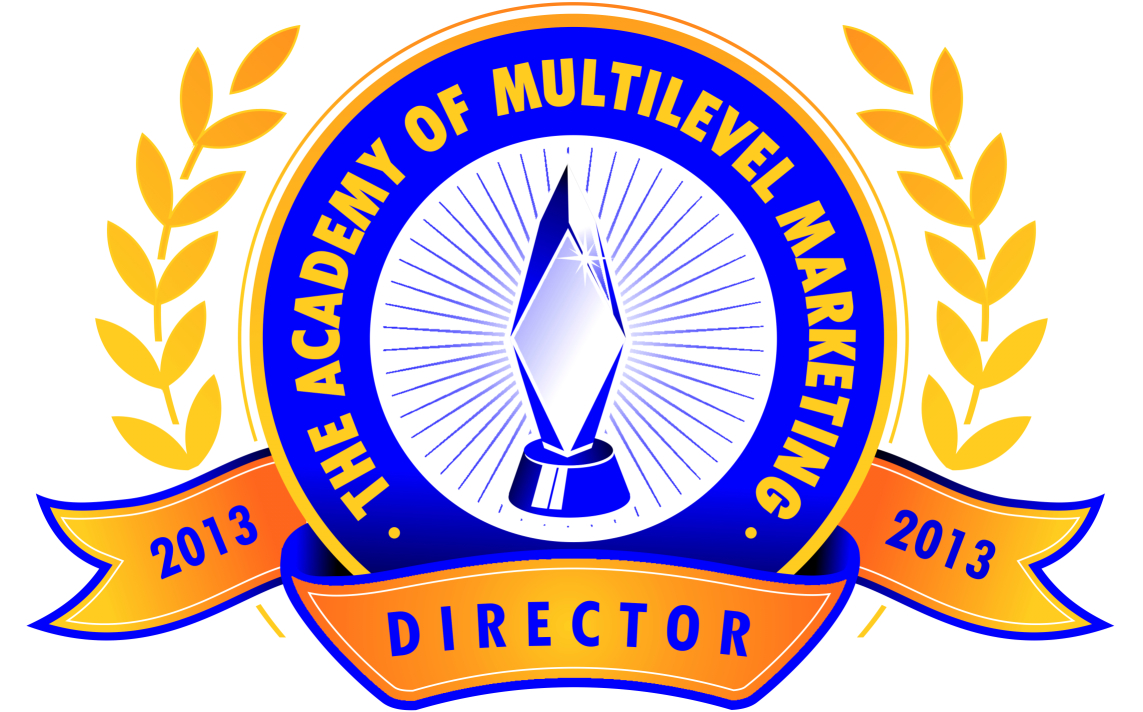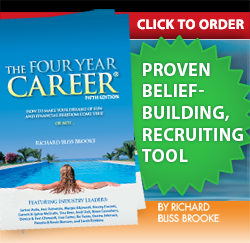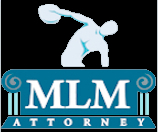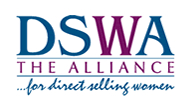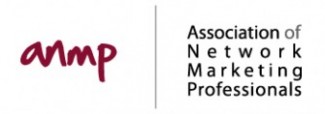|
Alert #218: 3/21/2013
Podcast #26: Industry Updates & Rants
Host: Len Clements; Co-Host: Randy Mitchell; News: Cathy Wilcox
The facts regarding all the class action lawsuits and the FBI’s alleged “criminal investigation” of Herbalife, as well as the FTC, SEC and AG investigations. Also, the final word on Vemma’s non-MLM stance, and closing arguments regarding the BK Boreyko interview (show #25).
Related links:
ABC News Report on Ackman’s Payoff to Herbalife Whistleblower
Case Study: Zeek Rewards [V1-N5]
An analysis of what defines an illegal pyramid, Ponzi scheme, and security, using Zeek Rewards as a case study. My Zeek Rewards expose can be read here: http://www.insidenm.com/alerts/alert-210-8202012/
What’s an Illegal Security? [V1-N4]
What is the definition of a “security”, when and how is offering one illegal, and how this might apply to network marketing.
Alert #211: 9/17/2012
Zeek Rewards: Aftermath
Zeek Rewards Podcast Now Posted
Those of you following the Zeek Rewards debacle have probably heard about the two alleged class action lawsuits that are supposedly in the works. One is on behalf of Zeek victims against Zeek Rewards, and depending on what happens with the receiver, and how much money is eventually returned, this one may actually happen. But then there’s the one where funds are being raised to sue the SEC in an effort to get Zeek back in business. That one will never happen. In fact, in my opinion, it’s a scam designed to extract money out of victims of a scam.
The SEC claims ZR hit the trifecta of illegal schemes: they were a pyramid scheme, a Ponzi scheme, and an unregistered security. The lawsuit against the SEC has not yet been filed, probably never will be, and even if it is will likely be thrown out. But assuming it actually does get filed, and survives a demand for summary judgement against it, there is virtually no chance of it ever succeeding. All the SEC has to do it prove one of it’s three charges against ZR, and although I still believe (although not quite as strongly as when I wrote my ZR report) that they were not a Ponzi scheme, they very likely were an unregistered security, and they absolutely were a pyramid scheme.
If you’re rather hear me explain why rather than read my 35 page exposé, here’s the latest edition of my Inside Network Marketing podcast:
http://www.insidenm.com/podcasts/
Also, it has been alleged by a certain industry watchdog that the lead attorney in one of the class action lawsuits against Zeek Rewards, J. Calvin Cunningham, has been reprimanded by the North Carolina state bar for “cheating his clients”, and affiliates participating in the suit my be “jumping out of the frying pan into the fire”. Within this commentary a link is provided leading to an article asserting Mr. Cunningham “rips offs” his “clients” (plural).
J. Calvin Cunningham Jr. did, in fact, receive a reprimand from the state bar for overcharging one of his clients. About 36 years earlier he had a son, which he named James Calvin Cunningham. His son went on to also become and attorney – and file a class action lawsuit against Zeek Rewards!
J. Calvin Cunningham III has not only never been reprimanded by the state bar, he has had a rather exemplary career.
Survey Question
Who do you think deserves to be “exposed” next?
Len Clements
Founder & CEO
MarketWave, Inc.
Alert #210: 8/20/2012
Inside Zeek Rewards
What Went Wrong, When, and Why
Zeek Rewards Expose’ – Better Late Than Never
This extensive review (35 pages, 100 footnotes) is now offered more as an explanation rather than a warning. Hopefully it will also serve as an educational tool to help prevent this kind of emotional and financial damage from happening again.
My greatest regret is that I didn’t get this done sooner. As I explained in the review, my policy is to never make a public comment regarding concerns I have with any person, product or company, until I’ve gotten their side of the story. I have made exceptions, but only when their was a smoking gun, and the evidence was irrefutable. In ZR’s case, virtually all of the myriad concerns I had still left open at least the possibility of a valid explanation, or that I had simply got it wrong. Also, ZR was a work-in-progress. It didn’t make a lot of sense to write up a novella about what ZR is at that moment when it would have been made obsolete several times over before the review was completed. As I state in the review…
“The first challenge in reviewing ZeekRewards is that it has been in a constant state of metamorphosis… About the time all the online chatter began about what ZeekRewards was and was not, legally, structurally, and economically, was about the time it started to turn into something different. My argument for not joining the debate during this time was that it was tantamount to arguing whether this newly found species was going to be a beautiful, rainbow colored butterfly, a fuzzy gray moth, or a malaria riddled mosquito, while it was still inside the cocoon. Unlike so many other Zeek critics, I chose to wait to see what emerged rather than judge what it was, or was in the process of changing from.”
I also was led to believe by ZR management that an “exclusive” interview with founder and CEO Paul Burks, along with attorney Kevin Grimes, was imminent. This was to be recorded for broadcast on my “Inside Network Marketing” podcast, and it was fully understood that no questions were off the table. After waiting a month, and three postponements, I started work on writing this review based on what I had.
My biggest concern when I do this is, what if I’m wrong? What if I don’t have my facts straight? What if I’m about to bash them on something that they are about to change or eliminate? In this case, my concerns were confirmed, but by the SEC rather than a member of ZR corporate management.
Still, I feel somewhat like how I feel when I hear about a life saving medication passing FDA mandated, years long, double blinded clinical trials. We eventually find that the drug works when those who got the real drug get better. But in the mean time thousands of people who got a placebo died unnecessarily. I’m not debating this specific practice (at least not here, and now), I’m just lamenting how my own self-vetting process very likely caused at least one person to dump thousands of dollars into ZR that otherwise wouldn’t have. And even one was too many.
Or, it might have made no difference. I warned at least a dozen friends and associates about Zeek. Every one of them joined anyway.
Either way, I should have gotten this done sooner, and I am sorry I didn’t.
This review is a monster. It involves a lot of legal theory and delves deeply into the minutia of what was ZeekRewards. But if you can bear through it I assure you, you will be armed with all the ammunition you need to be sure that you, your family, and your friends will never be a victim of an illegal pyramid, Ponzi, or investment scheme again.
You’ll also completely understand why the closure of ZeekRewards was inevitable, and why (in spite of rumors to the contrary), it is not coming back.
Here’s the SEC’s press release, which includes a link to the legal Complaint:
http://www.sec.gov/news/press/2012/2012-160.htm
Forbes, Reuters, Fox News, MarketWatch, CNN, The Wall Street Journal, and many local news outlets have all reported on the “SEC Closure” of ZR. Just Google “Zeek Rewards” and “News” and you’ll find them.
And, finally, here’s the ZeekRewards review:
http://www.MarketWaveInc.com/docs/ZeekRewardsReview.pdf
I’m also going to be doing an INM podcast on this issue in the next few days, because there’s a lot of stuff I want to say about the aftermath of this fiasco, and I talk a lot faster than I type. Also, I’ll be a guest on Tony Canulli’s “The Slight Edge” show on the “Home Business Radio Network”, where we will be discussing nothing but Zeek.
I know there’s a lot of you who have a lot of questions. For those who don’t get them answered within this review, or during my podcast, or on Tony’s show, I’ll be conducting a live Q&A call devoted entirely to ZeekRewards within the next few days as well. Stay tuned for details.
ZeekRewards was an M.L.M. experiment gone awry. It was an out-of-the-box concept that hit it out of the park but, I strongly believe, had no intention of being out of compliance. And while the idiom “Intent is 9/10th of the law” is completely false, it may very well have played a roll here. In spite of the SEC’s declaration that ZeekRewards was a “$600 Million Online Pyramid and Ponzi Scheme”, no criminal charges have been filed against Mr. Burks (or any other member of Zeek’s senior management) and he was allowed to settle without even admitting any guilt.
One final thought for those of you who were involved in ZeekRewards: As much as the anti-MLM critics are going to exploit this, and the media is going to sensationalize it as another bad “multilevel marketing scheme”, ZeekRewards was an aberration. They are not representative of the multilevel marketing profession, or indicative of how the business model operates. Please don’t give up on the profession itself.
This education was probably a costly one. Don’t waste it.
Len Clements
Founder & CEO
MarketWave, Inc.
Podcast #21: Zeek Rewards
Pyramid, Ponzi, and Investment Schemes
Is One Hiding Behind Your MLM Program?
By Len Clements © 1997
Pyramid, Ponzi and investment schemes disguised as legitimate MLM programs continue to flood the U.S. market. But unlike their predecessors, they’re hiding their true nature better than ever. Many quasi-pyramids and money games today are taking great advantage of the ignorance of most people as to what constitutes an illegal pyramid. Please understand, I do not use the term “ignorance” derogatorily. The term comes from the word “ignore” and many of us are simply ignoring a few basic, simple facts that make up a composite of a typical pyramid or other such scheme. Also, understand that I am not an attorney, an attorney general, or a postal inspector. But I know what questions they ask – and so should you! Also, as I describe the legal definitions of these various kinds of schemes I’m going to use plain English. For example, where the proper legal language might refer to the payment of “consideration,” that being anything from gold dust to chickens, I’m going to assume that it’s safe to just say money. If you want all the verbose legalese, call a lawyer.
Let’s start with the ol’ classic – the Pyramid Scheme.
By definition, a Pyramid Scheme is one where there is some kind of direct financial reward for the act of recruiting another person into the scheme. A blatant pyramid scheme would involve no product at all. You simply pay a chunk of cash to play, and hope you recruit enough others to cash out, usually for several times what you originally invested.The roots of most pyramid/MLM law is founded on the Amway vs. FTC decision in 1979. Perhaps the single most defining characteristic of a legal network marketing company vs. an illegal pyramid scheme came from these hearings. Essentially, the question was asked… “Can the last person in still make money?”
Obviously, the last person in a pyramid scheme will never make a dime. But if you were the very last person to ever sign up as a distributor for Amway, or any number of other legal MLM operations, could you still make money? Of course. By buying the product at wholesale and selling it at retail. The last person in, with no recruiting, can still make money.
If you were the last person to sign up in your MLM program, could you reasonable expect to be able to mark up the product or service and resell it to an end user? That is, someone who only wants the product or service? Are you, and your downline distributors buying the products because you genuinely want them, or are most of the distributors making token purchases simply to satisfy a quota in the compensation plan? Having real products of value to an end user is a key element of a legal MLM enterprise.
Having said that, one of the most common, and least accurate questions you can ask in determining if something’s a pyramid scheme is simply asking, “Is there a product.” Almost every pyramid out there today has thrown in some kind of token product knowing you’ll ask that question. Some extremists will go so far as to tell us that the “service” they provide in exchange for your fee is their administration of the intake and outgo of cash. Some will claim you are paying to have your name added to a mailing list. Of course, the typical chain letter leads you to believe you are paying for a report of some kind. However, there are literally dozens of schemes out there that are not nearly as obvious. Some offer what appears to be an abundance of bona fide, tangible products. But again, the focus should be on value and motive.
One of the best examples I can recall was a program called The Ultimate Money Machine. For $350.00 you were to receive such items as luggage, a 35mm camera, and a seminar on cassette tape valued at, of course, hundreds of dollars. Well, the camera was a cheap, plastic job that probably had a value of less than $10.00, and the luggage you unrolled from a tube. Total cost to the company forall of these products was probably less than twenty bucks!
A program called Euro-Round required a $100.00 payment in exchange for nothing. Later, to “make the program legal,” they added a little book.
Schemes like Investor’s International, CommonWealth, Global Prosperity, Delphin, and it’s various other incarnations, would have you buy some literature and a few cassette tapes, with a material cost of around ten to twenty bucks, for usually about $1,250. There rationalization is that “Information is priceless!” Okay. Let’s (reluctantly) give them that. But such schemes usually withhold a larger and larger portion of your income to qualify you in subsequent stages, or cycles, and these funds are allegedly for the purchase of, usually, a live seminar on some Caribbean island. At the top stage you might end up paying as much as $100,000 for a seven day seminar in Belieze. It better be catered!
A few companies today still offer product vouchers or certificates that can be spent on items out of a catalog or from various local merchants. They are actually only offering the funds to purchase these products. There is usually a commission paid once the certificate is purchased, even if it is never redeemed. The result? Nothing but paper, most of it cash, being exchanged. There is a great deal of recent legal precedent in this area. The upline shouldnever be paid out of any kind of down payment, layaway, voucher purchase, or any other similar transaction that does not involve an immediate acquisition of a product or service of value. In other words, no one should get paid until an actual product gets shipped.
As to “motive,” again, are you and others buying the product because you want that product or can sell that product, or are you buying it because you have to to make money? For example, if a company pays commissions on sales aids or distributor training, which several are doing as of this writing, this creates a legal vulnerability. Obviously, you can’t mark up a product brochure, distributor manual, or distributor training course, and resell it to someone who’s not a distributor. Obviously, you would never have purchased any of these items if you weren’t a distributor yourself. These are sources of income that can only be derived from recruiting because recruits are the only ones that would ever purchase them.
So don’t just ask if there is a product involved. Question whether the product is even close to being worth the overall price paid. You don’t have to be an economics genius to know the answer. Just ask yourself this question: “Would anyone realistically ever purchase this product or service without participating in the income opportunity?” Thousands of people purchase products from such companies as Nu Skin, Watkins, Herbalife and Amway every day without becoming distributors. They just want the product. This is true for most of the MLM companies out there. But certainly not all.
So, now how exciting is that big ad you just saw that boasted “NO SELLING!” Consider it a big red flag.
Now let’s discuss Ponzi Schemes.
First of all, no, a Ponzi is not the same thing as a Pyramid, although Ponzis are often referred to as a pyramid. In a pyramid scheme, you pay in X, the pyramid promoters keep, let’s say, 20% of X and use the other 80% to pay all those who “cash out.” Not unlike legitimate MLM operations, a distributor can earn far in excess of what they personally paid in, but the MLM company itself never pays out much more than 40-50% of every wholesale dollar that comes in.
In a Ponzi scheme, you pay X to the promoter who promises that you will receive a certain specific return, say 2X (twice your investment) back in a few days. The promoter accomplishes this by finding another sucker who’ll buy into the same promise, and he then uses the second suckers investment to pay off the first’s.
As an example, let’s use Carlo Ponzi himself. Back in the early 1920’s, Ponzi offered a $1,500 return on a $1,000 investment. When sucker A paid him $1,000, he then got sucker B to believe the same pitch and invest another $1,000, then took $500 from B’s money to add to A’s original investment, and paid A back his $1,500! Of course, a modest “service charge” was retained by Ponzi. With only $500 of B’s investment still in hand, Ponzi now needed to find sucker C so he’d have another $1,000 to add to the $500 he already had, and then pay sucker B his promised $1,500. Now, he had to find yet two more suckers to have the funds to pay off sucker C. And so on, and so on.
Ponzi accumulated millions. He died a penniless ex-con.
Ask yourself this question about the program you are evaluating: “If all recruiting stopped today, would this company still be able to pay monthly commissions in the months ahead?” Although there may be no pyramidal hierarchy involved, a Ponzi Scheme does involve the need for a never ending flow of new participants making the initial investment. This also falls, once again, on the value of the products. If not one new person is ever again enrolled as a distributor, could sales volume realistically continue to move through the organization?
But there’s more to consider. Let’s say a company has great products that people love and would continue to purchase even if they didn’t make money. However, for every wholesale dollar they pay to the company, the company pays $1.05 back to the distributor force in commissions and bonuses. In other words, their compensation plan has a 105% pay out! Technically, if they really did pay out more than 100%, this would be a Ponzi Scheme. The company must sell one more product to be able to cover the compensation for the previous sale (otherwise, they’d be 5 cents short). And there are a number of MLM deals today that claim to have such exorbitant pay outs. In reality they most likely do not. Probably not even close. For example, one MLM program claims a 112% pay out, but the percentage is based on the point value of each product (called BV, or Bonus Value), not on the actually dollar amount – and the BVs average about 68% of wholesale dollars. Another company promotes a 109% pay out, but usually forgets to mention their 75% BV ratio, and the fact that the 60% they pay on the first two levels (15% and 45% respectively) is only on the first $300 purchased by each distributor during the month. The pay 5% on all the volume over that. Yet another company claims a pay out that actually exceeds 200%! The catch is, they pay a higher percentage on those you personally sponsor, and the pay out they display in their ads is based on the wholly absurd scenario that every single person in your downline is personally sponsored.
So, just because someone says they pay out more that they take in (over 100%), doesn’t necessarily mean they are running a Ponzi Scheme. There’s very likely a catch. Still, considering state and Federal regulator’s penchant for taking on a guilty ’till proven innocent attitude (they attack first and ask questions later), I’m curious as to why these companies would want to even create theillusion that they are paying out more than 100%. Why would they even want to pretend they are a Ponzi Scheme?
Lastly, let’s discuss “Investment” Schemes.
The three regulatory agencies we need to be concerned with the most, from an MLM opportunity stand point, are the Federal Trade Commission (FTC), Food & Drug Administration (FDA), and the often underconsidered Securities & Exchange Commission (SEC). From a personal, independent contractor stand point, you have the IRS to worry about as well. But that’s another article. You’ll likely never have to contend with either the FBI or FCC – unless, of course, that “sense of well being” you get from your herbal product is derived from a South American poppy, or you enroll Howard Stern as a distributor.
Getting back to the SEC…
“Securities” are basically things you invest money in, like stocks, bonds, mutual funds, commodities, and so on. You have to register the securities you sell with the SEC and you have to have a license to sell them. Skip either step and you might be going away for a little while.
In 1946 (as part of the SEC vs. W.J. Howey Co. decision) the Supreme Court defined an investment contract as one where “…the scheme involves an investment in a common enterprise with profits to come solely from the efforts of others.” (The word “scheme” is used here, and throughout this paragraph, in a basic, non-derogatory sense). So, there’s three things to consider: First, is there money being paid into the scheme (an investment)? Second, are there a lot of other people paying money into the same scheme (a common enterprise)? Note that, so far, every MLM operation appears to meet the first two criteria. But the third test is where we depart, or should depart, from a security – is the money you make from the scheme derived “solely from the efforts of others?” Well, I don’t know about you, but I work my tail off about 50 hours a week building and managing my downline! Sure, your time investment ideally forms a bell shaped curve (part time, then full time, then eventually back to part time), but there should always be a mandatory effort on your part to build, manage and support your organization.
This, of course, does not bode well for schemes (I’m using the negative connotation now) where you pay a “downline building service” to build your downline for you. It appears to be undebatable that all three aspects of the “Howey test” apply to such a deal. You pay money to the same promoter that many others are, and they openly promise to do all the work for you and you simply sit back and cash the checks. No, there has not been a lot of legal action against such schemes because, well, they have a 100% failure rate all on there own!
In closing, I want to make it clear that this article is not necessarily based on the author’s opinion of the way it should be. Much of this discussion is based on years of precedent, not just my laymen’s interpretation of the law. It’s simply the way it is. For the record, I am a Libertarian. Personally, I believe we, as adults, should be allowed to do what ever we want with our own money as long as there is full disclosure and we are made aware of all the risks involved. We’re spending the half our government lets us keep. It’sour money! In fact, I’ll go so far as to say I personally feel pyramid schemes should be legal. Not providing full disclosure about the risks and lying about the potential benefits should be against the law – and, in fact, already are! If all this information is provided, then we should have the right to be stupid with our own money.
Having said that, rules are rules. And until someone changes them, we’ve got to play by them.
My soap box is cracking. I’ll step down now.
